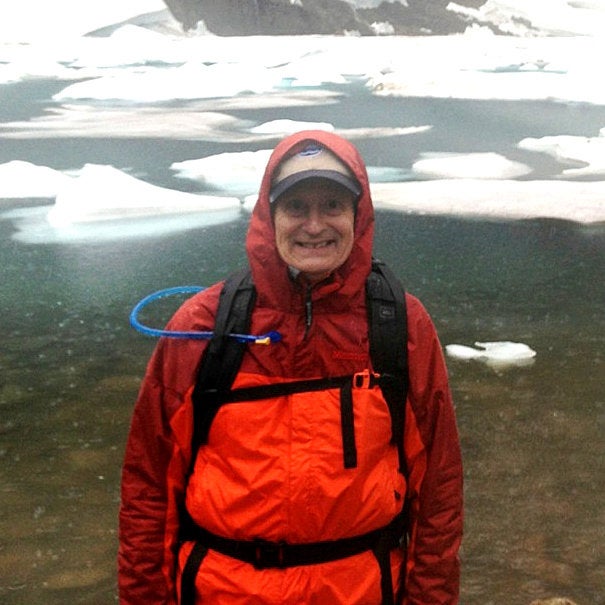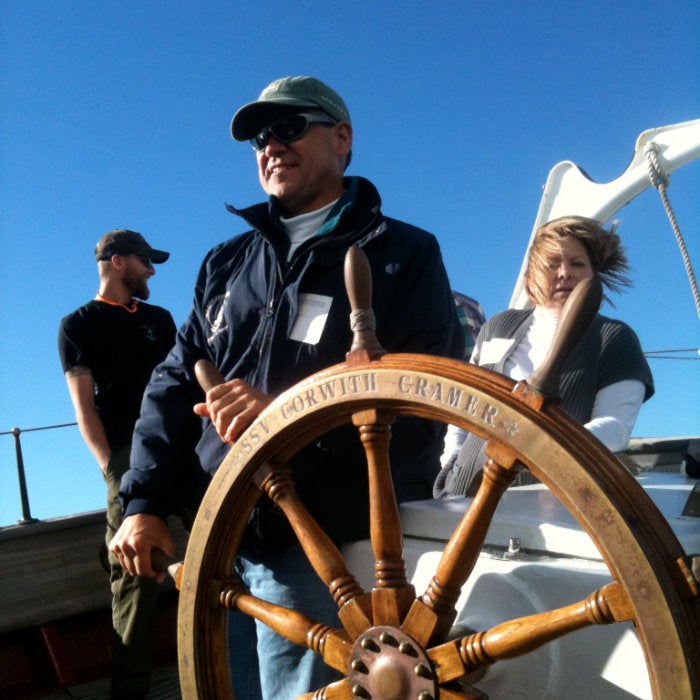Motion: On
Motion: Off
Contrast: Standard
Contrast: High
Apply site-wide
With its proximity to proposed offshore wind farms and abundant wave and tidal resources, the University of Rhode Island provides an ideal setting for studying the social, environmental, and technical aspects of these emerging sectors.
Marine Affairs is an active participant in the university-wide interdisciplinary ocean renewable energy initiative.
Faculty
Research
- Prof. Bidwell discusses offshore wind communications on new podcast - Swedish offshore wind energy company Vattenfall’s recent “not safe for work” video starring American film star Samuel L. Jackson got a lot of attention online. Marine Affairs professor David Bidwell recently joined an S&P Global podcast to discuss the potential impact of this advertisement and the offshore wind communications environment in the U.S.
- Faculty Office Hour: Communities and Wind Farms - As new offshore wind farm projects commence along the New England coast, who gets to have a say in where, or if, they happen? Professors David Bidwell and Emily Diamond, along with PhD candidate Shannon Howley, are studying how vulnerable groups and communities are reacting to their development, including residents’ and visitors’ attitudes toward the Block Island Wind Farm project and its impacts on tourism and recreation, as well as the role of the media in public perception of offshore wind farms.
- New article on recreational angling at offshore wind farm - The authors include a faculty member, graduate student, and alumna of URI Marine Affairs, publishing in the journal Marine Policy.
- Beyond the beach: Tradeoffs in tourism and recreation at the first offshore wind farm in the United States - T. Smythe, David Bidwell, Amelia Moore, H. Smith, J. McCann
An exploratory qualitative study through which tourism and recreation professionals and participants met in focus groups to discuss experiences with and observations of the 30-MW Block Island Wind Farm. - Chains of trust: Lessons on public engagement from the United States’ first offshore wind farm - J. Dwyer and David Bidwell
A case study highlighting the potential of engagement actions that meet stakeholder expectations and build trust, while also empirically demonstrating specific techniques that future process leaders could employ to increase stakeholder acceptance of RETs. - Ocean beliefs and support for an offshore wind energy project - David Bidwell
This article explores how underlying values and beliefs about the ocean influence public support for offshore wind energy. - Understanding the Relationship Between the Block Island Wind Farm and Indigenous Island Lives, Past and Present - Amelia Moore and Jessica Frazier Exploring the indigenous experience on Block Island and the social effects of the Block Island Wind Farm and its cables on current indigenous lives and the future of indigenous community life on the island.
- Sociocultural Adaptations to Renewable Energy Infrastructure in Aquapelagic Systems - Amelia Moore This ongoing project experiments with decolonial ethnographic methods to explore the sociocultural effects of renewable energy transitions, utilizing the New England transition to offshore wind as a primary case study.
- Analysis of Effects of the Block Island Wind Farm on Rhode Island Recreation and Tourism Activities - J. McCann, David Bidwell, Amelia Moore, H. Smith, and T. Smythe Using social science methods to assess the effects of the Block Island Wind Farm on tourism and recreation activities.
- Assessing Impacts of the Block Island Wind Farm on Recreational Saltwater Fishing - David Bidwell, T. Smythe, Tracey Dalton, and J. Livermore This study uses qualitative and quantitative data to assess effects of the Block Island Wind Farm on recreational saltwater angling.
- Investigation of Users’ Preferences for and Values of Recreational Boating Activities Associated with the Block Island Wind Farm - Tracey Dalton, J. Livermore, J. Opaluch, Rob Thompson Investigation of on-the-water users’ preferences for recreational boating trips associated with off-shore wind farms in and around Rhode Island waters.
- Understanding Marine Resource User Response to Ecological Impacts of Offshore Wind Energy: A Case Study of the Block Island Wind Farm - J. Livermore, J. McNamee and Tracey Dalton This interdisciplinary project investigates how the Block Island Wind Farm and its corresponding electricity transmission system to the mainland will impact the local marine ecosystem and how marine resource users will be affected by these impacts.



